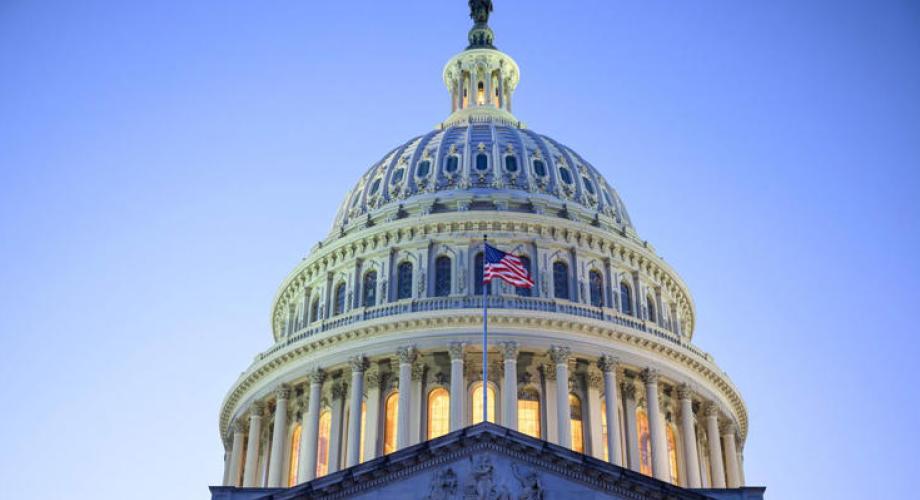On June 13, the House Ways and Means Committee approved three tax bills on party-line votes that would, among other proposals, enable multifamily firms to deduct additional business interest without having to depreciate buildings over 30 years and allow firms to fully expense certain investments in the year of purchase.
The bills represent the House Ways and Means Committee’s opening gambit on tax legislation for 2023. Should the full House approve these bills, negotiations could begin with Senate Democrats who will want to see their priorities, including an expanded child tax credit and possibly an enhanced Low-Income Housing Tax Credit, reflected in any potential tax bill sent to President Biden. Such negotiations could take several months to complete and could stretch toward the end of 2023.
What’s in the Bills?
Two of the three tax bills would have a direct impact on owners, operators, and developers of multifamily housing. Here is a look at their key proposals:
The Build It In America Act would enable multifamily firms to deduct additional business interest before having to submit to longer depreciation periods on their buildings and extend so-called 100 bonus depreciation.
Deductibility of Business Interest: Under current law, taxpayers may deduct business interest subject to a limitation of 30 percent of earnings before interest and taxes (EBIT). Prior to 2022, the limitation was 30 percent of interest, taxes, depreciation, and amortization (EBITDA). Multifamily firms are able to elect out interest deductibility limits (and fully deduct business interest) so long as they depreciate buildings over 30 years as opposed to 27.5 years. The proposal would extend the 30 percent of EBITDA limitation through 2025 without affecting the option for real estate businesses to opt out of the limitation in exchange for the somewhat longer depreciation period.
Bonus Depreciation: The proposal extends 100 percent bonus depreciation through 2025 to enable taxpayers to deduct the full cost of certain capital investments with a class life of 20 years or less (e.g., equipment and machinery) included in multifamily buildings. Under current law, 80, 60, and 40 percent bonus depreciation are available in 2023, 2024, and 2025, respectively. The proposal retains 20 percent bonus depreciation for 2026.
Energy Tax Incentives: The proposal repeals certain energy tax incentives enacted as part of the Inflation Reduction Act of 2022, including the new technology-neutral clean energy production credit and the clean electricity investment credit.
These technology-neutral credits were enacted to replace the current-law section 45 production tax credit and the section 48 investment tax credit beginning in 2025. Additional information on these credits can be found here.
The Small Business Jobs Act would provide tax incentives for investments in rural opportunity zones and establish reporting requirements for opportunity zones.
Rural Opportunity Zones: The proposal would establish rural opportunity zones and enable capital gains reinvested in such zones to be deferred during the investment period while also potentially excluding from tax capital gains generated from such investment.
Capital gains deferred for reinvestments held for at least five years would receive a 10 percent basis increase while those deferred for at least seven years would receive a 15 percent basis increase. Capital gains generated from the reinvestment of deferred gains would be excluded from tax if the underlying investment were held for at least 10 years.
Opportunity Zone Reporting Requirements: The proposal would require all qualified opportunity funds to report to the Treasury Secretary and investors on their investments. Among other information, qualified opportunity funds would have to report are
- the value of their assets held; the value of their qualified opportunity zone property;
- the approximate number of residential units for any real property held;
- the location of property; and
- the number of persons employed.
The Treasury Department would be required to make annual reports that aggregate data contained in reports filed by qualified opportunity funds. Aggregate reports submitted in years six and 11 would also have to compare outcomes in opportunity zones to areas that were not so designated.
What’s Next?
Following the Ways and Means Committee’s approval of these bills, the full House is expected to consider this legislation. This will then set up potential negotiations with Senate Democrats who will want to see their priorities, such as an expanded child tax credit, included in a tax package that can clear both the House and Senate.
It is possible that tax provisions addressing housing supply, most notably those expanding the Low-Income Housing Tax Credit, could be part of such a negotiation. The timing and ultimate prospects for a potential final legislative package are unclear, and successful negotiations could take until the end of 2023 to complete.
